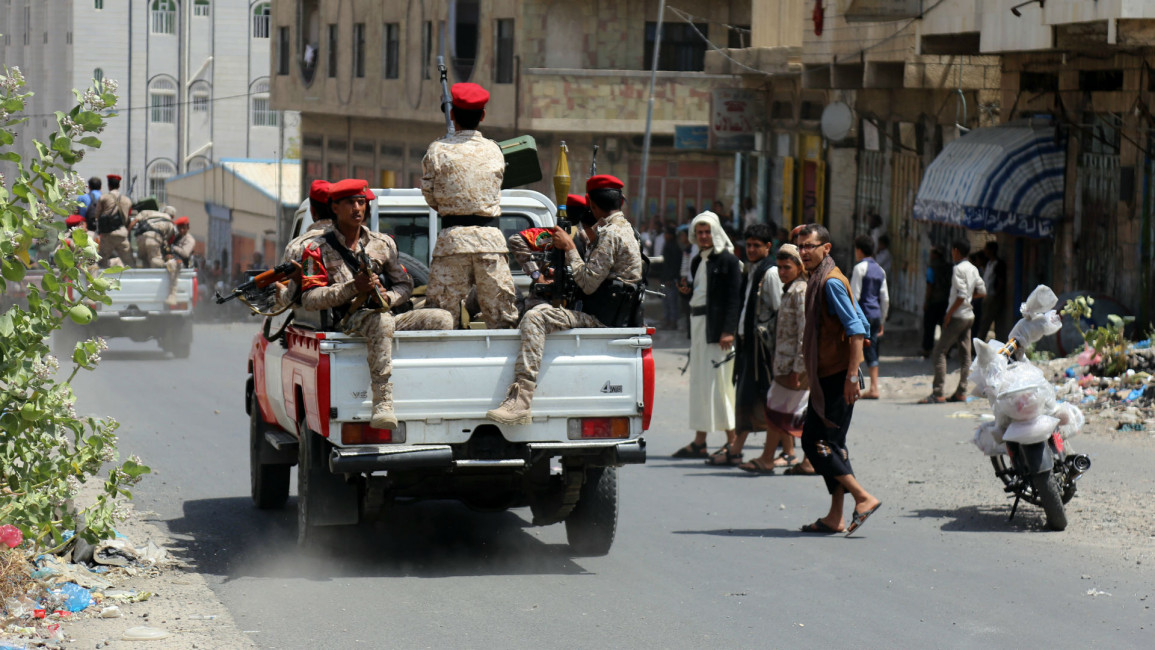UAE-backed Yemeni army colonel assassinated in Taiz
An unidentified gunmen shot dead a pro-government army colonel in Yemen’s southwestern city of Taiz, security officials said on Sunday.
The assailant killed Col. Radwan el-Wassabi, who was backed by the United Arab Emirates, in central Taiz late on Saturday, the officials said, noting four of the colonel’s guards were also wounded in the attack.
In March, Yemen entered its fourth year of war between the Houthi rebels and pro-government forces backed by a Saudi-led military coalition.
Taiz city is split between rival government and Houthi rebel control.
Earlier this month, more than 70 international humanitarian staffers in Yemen were pulled out of the country, over rising security threats, the Red Cross said.
A statement released by the International Committee of the Red Cross (ICRC) said that despite the desperate situation facing Yemenis, a breakdown in security means that humanitarian workers are no longer safe in the country.
"While the Yemen delegation has received numerous threats in the past, we cannot now accept additional risk less than two months after a gunman killed a staff member," referring to the murder of a Lebanese employee in the southern city of Taiz in April, the statement read.
"The security of our staff, who are being intimidated by parties to the conflict, is a non-negotiable prerequisite for our presence and work in Yemen."
The ICRC added that the decision will lead to the "crippling" of its life-saving work in the war-ravaged country.
"Our current activities have been blocked, threatened and directly targeted in recent weeks, and we see a vigorous attempt to instrumentalise our organisation as a pawn in the conflict," the statement added
More than 10,000 people have been killed in the conflict, which has triggered what the United Nations has called the world's worst humanitarian crisis.
Militants, including from al-Qaeda and the Islamic State group, have taken advantage of the chaos to expand their influence in parts of Yemen, particularly in the south.
More than 22 million people are dependent on aid and 8.4 million are on the verge of famine in Yemen.


![President Pezeshkian has denounced Israel's attacks on Lebanon [Getty]](/sites/default/files/styles/image_684x385/public/2173482924.jpeg?h=a5f2f23a&itok=q3evVtko)



 Follow the Middle East's top stories in English at The New Arab on Google News
Follow the Middle East's top stories in English at The New Arab on Google News


